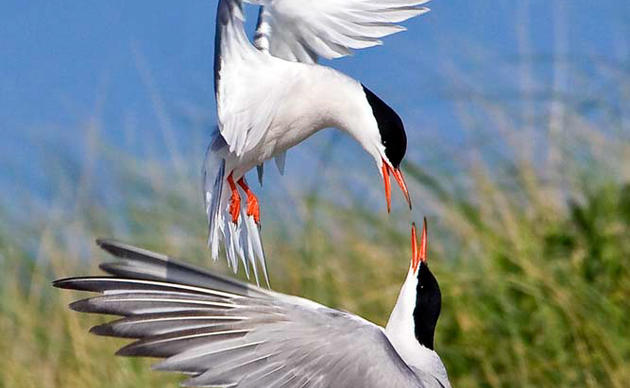Restoring Floodplain Forests in the Vermillion Bottoms and Lower Cannon River IBA
The Vermillion Bottoms/Lower Cannon River Important Bird Area (IBA) contains over 11,000 acres of floodplain forest along the Mississippi River in southeast Minnesota. These unique forests are home to many species of wildlife and birds, including rare species like Cerulean Warbler and Red-shouldered Hawk.
Unfortunately, these forests are under threat. When trees are removed or die naturally, invasive reed canary grass takes over and prevents natural regeneration. This is occurring at a number of locations within the IBA. Without aggressive, long-term management these floodplain forests will be greatly reduced or in some locations disappear completely.
Recently, Audubon Minnesota, in cooperation with the Minnesota Department of Natural Resources, completed a floodplain forest restoration project on 20 acres within the IBA. The project consisted of controlling reed canary grass followed by planting large potted trees of four species (cottonwood, silver maple, swamp white oak, black walnut) that will grow fast and create a canopy to shade out the reed canary grass. (See photos below)
By selectively controlling invasive species and planting larger size trees, the forest can be sustained. Restoring small sites within larger tracts will ensure that a diversity of tree species, sizes, and ages are present. This approach over time will maintain the large contiguous blocks of quality floodplain forest needed for migrating and resident birds and other wildlife.
Funding for this project is provided by the Minnesota Environment and Natural Resources Trust Fund as recommended by the Legislative-Citizen Commission on Minnesota Resources (LCCMR).
How you can help, right now
Donate to Audubon
Help secure the future for birds at risk from climate change, habitat loss and other threats. Your support will power our science, education, advocacy and on-the-ground conservation efforts.
YOU can be a community scientist!
You can volunteer with Audubon Minnesota and help support birds.




